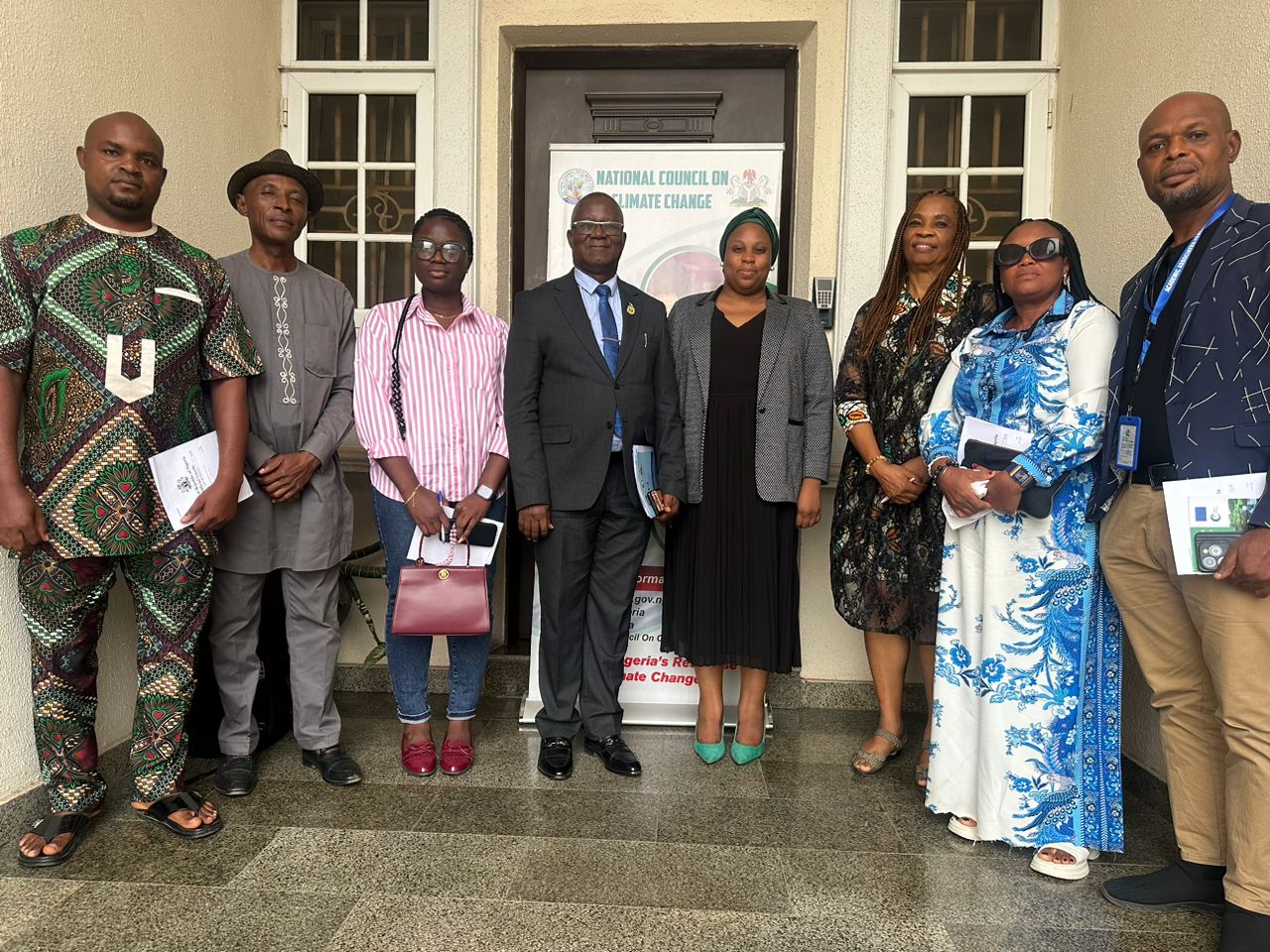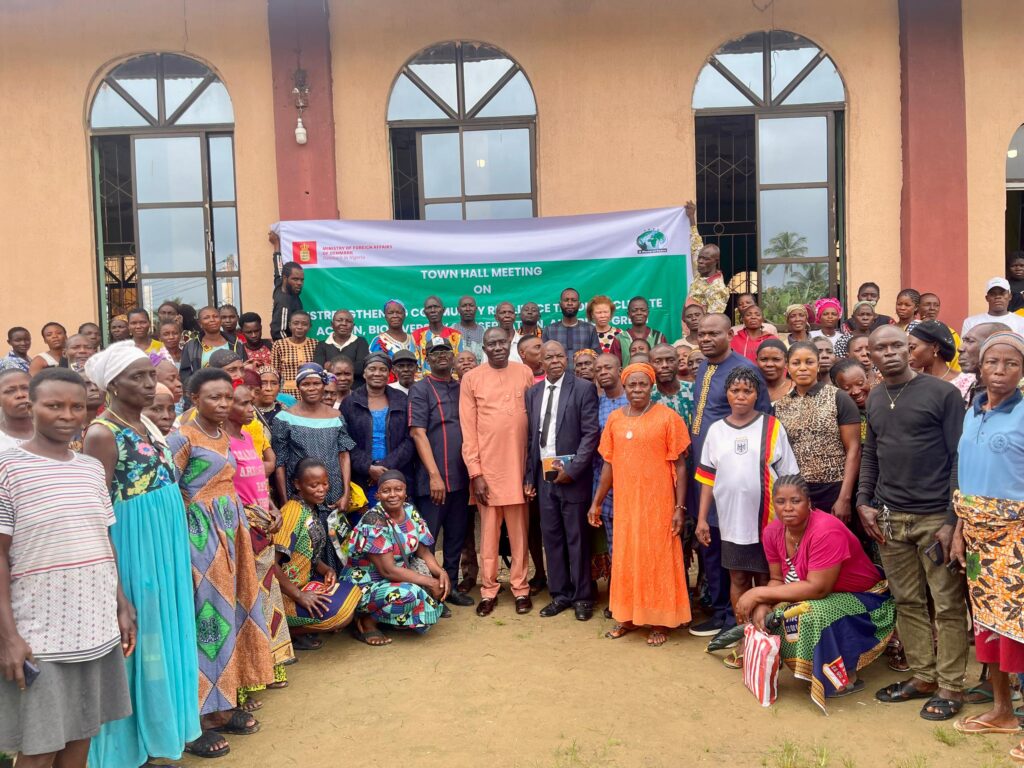Academic Associates PeaceWorks and her partners, under the Coping with Climate Change as a Cause of Conflict in Coastal Communities in West Africa initiative, met with Dr. Nkeiruka Maduekwe, Director General of the National Council on Climate Change, to present a policy brief and discuss strategic measures for mitigating climate change impacts on coastal regions. The high-level engagement underscored the urgency of addressing environmental threats contributing to community vulnerabilities and conflicts.
Air Commodore Darlington Abdullahi (Rtd.) delivered an overview of the policy brief, outlining the project’s key objectives and its role in climate change mitigation. He emphasized the need for coordinated action to enhance the resilience of coastal communities.
Ambassador Nkoyo Toyo highlighted the project’s mission to amplify the voices of affected communities through research and advocacy. She stressed the pressing need for coastal infrastructure development to mitigate the adverse effects of climate change and safeguard livelihoods dependent on marine and coastal resources.
Dr. Nkeiruka Maduekwe commended the consortium’s efforts and reiterated the importance of community involvement and ownership in sustainability projects like mangrove restoration, citing that deforestation is largely human-driven. She emphasized that public engagement and awareness creation are essential to ensuring long-term success in climate adaptation strategies. Additionally, she noted the council’s ongoing efforts to operationalize climate funds and encouraged stakeholders to contribute to the development of Nationally Determined Contributions (NDCs 3.0) to facilitate further funding opportunities.
AAPW Project Manager, Mr. Isu Menidin urged the council to sustain engagement with the project and ensure that its momentum is maintained. He also advocated for the implementation of climate-smart strategies to enhance the sustainability and resilience of coastal communities.
The meeting reinforced a shared commitment to strengthening climate resilience through collaborative research, advocacy, and strategic action. Discussions provided critical insights into climate financing mechanisms and the role of national policy frameworks in advancing sustainability efforts for vulnerable coastal regions.
Note to the Editor:
AAPW Media contact: Success Nwanedo: Senior Communications Officer, AAPW
success.nwanedo@aapw.org






